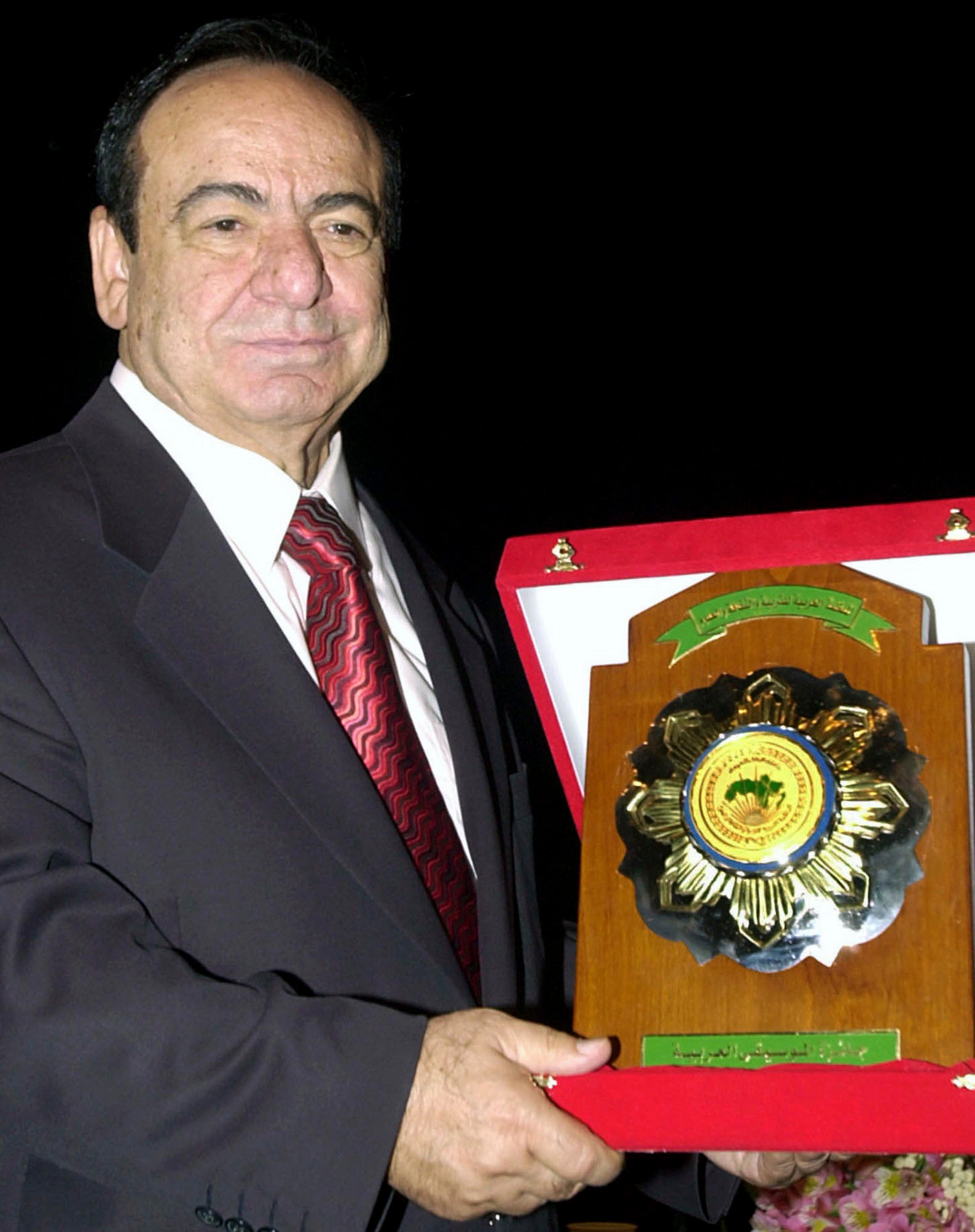Arab world's legendary singer, Sabah Fakhri, dies at 88
Syria's government says Sabah Fakhri, one of the Arab world’s most famous singers, has died at the age of 88

Your support helps us to tell the story
From reproductive rights to climate change to Big Tech, The Independent is on the ground when the story is developing. Whether it's investigating the financials of Elon Musk's pro-Trump PAC or producing our latest documentary, 'The A Word', which shines a light on the American women fighting for reproductive rights, we know how important it is to parse out the facts from the messaging.
At such a critical moment in US history, we need reporters on the ground. Your donation allows us to keep sending journalists to speak to both sides of the story.
The Independent is trusted by Americans across the entire political spectrum. And unlike many other quality news outlets, we choose not to lock Americans out of our reporting and analysis with paywalls. We believe quality journalism should be available to everyone, paid for by those who can afford it.
Your support makes all the difference.One of the Arab world’s most famous singers, Sabah Fakhri, who has entertained generations with traditional songs and preserved extinct forms of Arabic music, has died, Syria’s government said Tuesday. He was 88.
It was not immediately clear what caused Fakhri’s passing.
Born Sabah Abu Qaws in the Syrian city of Aleppo in 1933, Fakhri got his stage name as an adolescent when he started performing.
He soon rose to fame to become one of the Arab world’s legendary tenors and one of its exceptionally charismatic entertainers.
Fakhri was a world class Tarab singer, an Arabic form of music associated with emotional evocation that could last for hours.
Onstage, Fakhri would engage the audience and sway to the music almost in a trance, turning the lyrics of his songs, often in classical Arabic, into refrains they can easily sing back with him.
He once performed for 10 hours straight in 1968 a concert in Caracas, Venezuela without a single break, earning an entry in the Guinness World Records.
Throughout his career, Fakhri preserved and popularized traditional forms of Arab singing and music, including Quddud Halabiya, native to his hometown Aleppo.
Fakhri’s voice was so powerful and distinct, he once told his interviewers that his family recognized it when he was a baby.
“I started singing when I was born,” he once told an interviewer for Egyptian TV CBC. A family member used to pinch him to hear him cry because “he liked the sound of my crying.”
He memorized the Quran when young and began reciting in mosques - a common path for a number of musicians and singers in the Arab world. Because of his powerful voice, Fakhri briefly worked as a muezzin - the person who calls for prayers - in a mosque in Aleppo.
“Quran is the great school for performance and good and clear pronunciation,” he said in the interview aired in 2014.
Fakhri studied music and singing in Aleppo and Damascus.
He earned various honors in the Arab world and was head of the Syrian Artists Syndicate.
Fakhri is survived by four sons, including Anas, a singer.